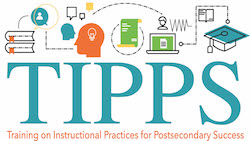Professional Development
Food Dignity – Webinar Series
With a strong track record in leading unique community-based meetings and experience operating nationally-recognized, scalable, and replicable food access programs, Food Dignity® has developed a series wherein we teach, facilitate, and equip your team to lead successful change. With the aim to bring about system transformation to effectively fight hidden hunger and promote food equity and empowerment, the Food Dignity® Movement is prepared to work with a wide range of diverse partners—universities, food banks, food pantries, public health departments, hospitals, SNAP-Ed and other anti-hunger professionals, community-based organizations, private foundations, student groups, farmers, and companies.
Rooted in our founder’s acclaimed work as a Registered Dietitian and international speaker, these webinars will provide an opportunity to reflect on and envision a more equitable future for the ways that nutritional security can be centered and woven through the work that you do, both as an individual and as a community.
We’ve specifically developed the Food Dignity® webinar series because we know how crucial it is to reflect on the charitable food systems transformation, build capacity within your community, and commit to effective change. Food Dignity®’s reputation has positioned us to support you in overcoming your challenges.
Be sure to check out the Food Dignity® Podcast for continued conversation: https://fooddignitymovement.org/podcast/
Food Dignity, Part 1 – May 10, 2023 – 10:30 AM to 12 PM
- Outcome #1: Demystify how food insecurity impacts everyone and all organizations
- Outcome #2: Identify assumptions and misconceptions associated with hunger that unintentionally hurt the community college and students.
- Outcome #3: Cultivate the mindset, communication, and leadership skills to teach people how to empower Food Dignity® concepts.
- Outcome #4: Discover easy steps to build an environment of inclusion and the voice of the people we are working with every day.
- Outcome #5: A high-level understanding of stakeholder mapping with an example to create a stakeholder map for the second session.
Food Dignity, Part 2 – June 5, 2023 – 1 PM to 2:30 PM
- Outcome #6: A stakeholder map including interested stakeholders within a community that interacts with community colleges in Illinois. It identifies key opportunities and threats to effective food access collaboration. This map is created by the webinar participants themselves based on our guidance and success in this sector.
- Outcome #7: An action plan with a minimum of three steps and measurable goals tailored for each participant and based on the mapping activity.
- Outcome #9: A roadmap with strategies provided in both webinars and a list of resources and best practices.
- Outcome #10: A report, including an analysis of data created during all sessions highlighting key takeaways.
Food Dignity, Q&A – June 21, 2023 – 10 AM to 11:30 AM
- Outcome #11: A follow-up Q&A for any interested participants. Participants are welcome to bring one stakeholder to this webinar to deepen their collaboration strategy. Participant questions must be submitted 3 days in advance to help with time management. Clancy will stay on the call until all questions are answered. If there is an overwhelming response, we will schedule participant presentations in 10-minute increments and possibly have a second and third Q&A session.
Training on Instructional Practices for Postsecondary Success

Training on Instructional Practices for Postsecondary Success (TIPPS) is a series of professional learning modules designed for postsecondary instructors in career and technical education. The modules provide an overview of evidence-based practices that strengthen teaching and learning. The ultimate goal of TIPPS is to lead to a better-prepared workforce. Through TIPPS, each instructor can work through the learning modules and construct a Universal Design for Learning (UDL) framework for their teaching by infusing pedological strategies with diverse learners in mind.
Educators can engage in TIPPS in various ways: Individually at their own pace, collaboratively with a group of peers, and/or by participating in facilitated professional learning sessions. TIPPS content is divided into four 1.5-hour sessions housed within our Equity University LMS. Sessions are interactive and provide practical activities for applying new knowledge in ways specific to participants’ contexts.
TIPPS spans topics related to learning conditions, curriculum, instruction, and assessment and focuses on the following learning objectives:
- Create optimal conditions for learning in an equitable and effective learning environment.
- Design an accessible curriculum that embraces learner variability.
- Apply instructional practices that are both rigorous and relevant to increase student engagement
- Use a balanced assessment and feedback system to inform teaching and learning.
Trauma-Informed Series
Impact of Trauma – November 30, 2022
Understanding the impact of trauma on the development of the brain and learning response strategies to build resilient youth and families. The trainers will cover adolescent development, childhood trauma, and resilience & recovery.
Culture and Trauma – December 7, 2022
Trauma has context. That context frequently has cultural and historical roots. This training will explore the relationship between trauma and culture by looking specifically at populations at high risk for experiencing trauma. Participants will also learn about the ways power and oppression impact trauma and access to resources. Lastly, participants will learn about resilience and protective factors these communities have built to combat trauma.
Vicarious Trauma – December 14, 2022
This training addresses trauma and its impact on those in caring professions. Participants will discuss the “caring traumas” and learn how to identify and address the signs and symptoms of each. Additionally, participants will contextualize these concepts by examining the systemic issues that can contribute to them. Finally, participants will learn about ways to address trauma and promote individual and organizational self-care.
Trauma-Informed Supervision – January 25, 2023
Designed for anyone who operates in a leadership/management capacity, this training helps professionals learn how to effectively manage and relate to the individuals they supervise. Participants will learn to provide trauma-informed supervision by learning about the way trauma can impact staff and recognizing signs of compassion fatigue and vicarious trauma.


